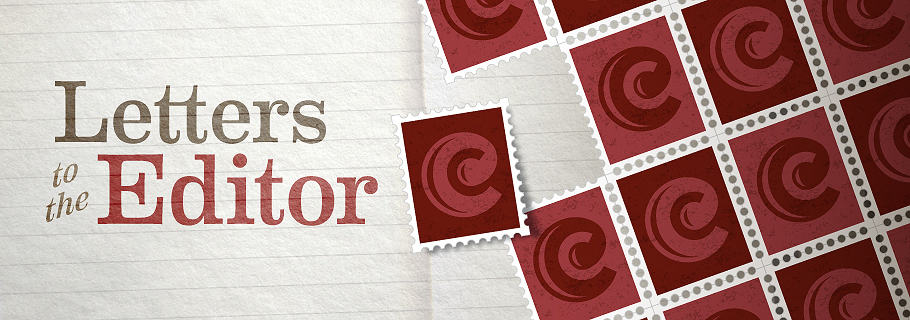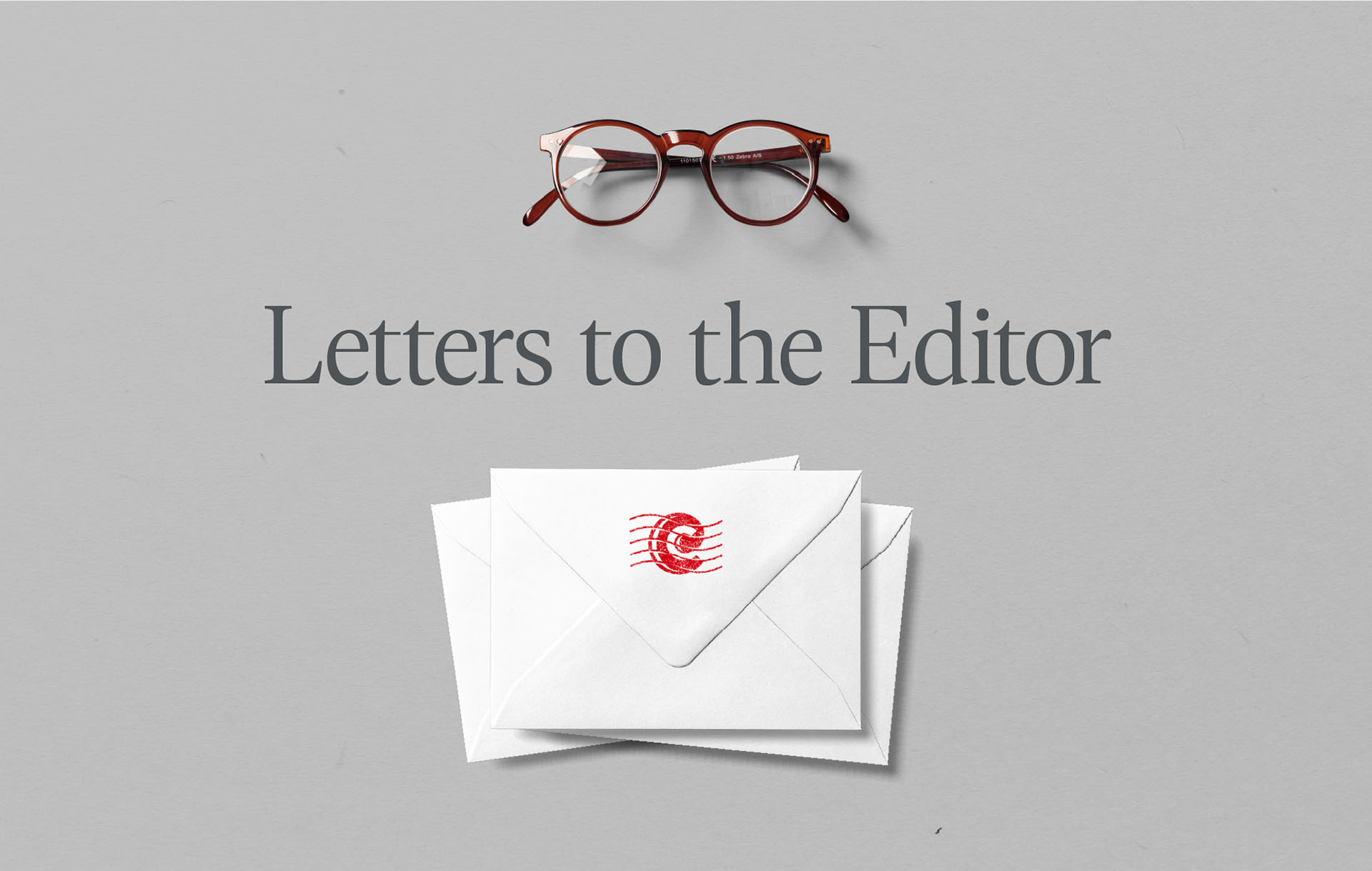
This week’s letters to the editor were almost all in response to my article Going All-in With Ebooks. I suppose this is not too surprising since Christians in general, and perhaps especially Christians who read a site like this one, tend to be committed readers. Every committed reader has an opinion, and often a very strong opinion, about the change of media we are experiencing today. Here is a representative selection of those letters. I begin with an excerpt of an open letter from Logos, the company I referenced in my article:
The people in my office at Faithlife, makers of Logos Bible Software, read your post “Going All-in With Ebooks” with excitement—and not just because we sell ebooks (including quite a few of them to you, and some of them by you). We read with interest because we are interested in reading. We like books, as do our users, and we like all kinds of books: biography, history, fiction, memoir, and, preeminently, theology and biblical commentary. (Continue reading it here)
Hi Tim, after reading your article on transitioning away from a physical book library I was surprised that the issue of lending & borrowing wasn’t addressed. What about when you’d like to loan someone a book on a certain topic, or maybe just pass along a great book that you’ve read but no longer need? I have talked to friends who are dealing with something or want to grow in a certain area and so I say, “Oh have you read such-and-such book? You can borrow mine”. Other times I’ve thumbed-through books at a friend’s house to see if it’s one I’d like to buy for myself. Amazon allows lending for certain titles (not many of the ones I own, however), but that is contingent on the borrower having an e-reader as well.
—Emily V, Jacksonville, FL
Tim: Yes, that is a sad loss when it comes to ebooks. Perhaps it is offset a little bit by the lower cost of ebooks.
There is one other large factor keeping me from going all-in with ebooks. I like to loan books that I think are helpful to friends. Currently there is not a good way to loan ebooks. So for topics where I think it would be useful to loan the book, I continue to go with paper.
—Alan S, Cary, NC
I read your article and wanted to shout “Noooooo!” thru the computer. I am computer literate and enjoy my Kindle. But there is something about a physical book that is timeless, nostalgic and even dependable. It allows me to hold in my hands, the books of those that have gone before me; to share my library (either for loan or give) at a moment’s notice with someone who would either delight in said book, or it would help them in a circumstance they are in. In the event of any weird technology war or attack, I still have good books at my fingertips. As I said, I like my Kindle, and it has its place…. but physical books have a greater place, in my opinion. Thank you for your thought-provoking blog posts.
—Lisa C, Coeur d’Alene, ID
I’m a book nerd, and while I love having books, my Kindle offers the ability to check out many books from my library or purchase a less expensive version of a book. Not to mention that it is much easier to carry an e-reader than several books through airport security, who will stop you if you have more than one book in your bag.
—Beth L, Bartlesville, OK
Tim: I love being able to carry my library with me when I travel. While I was traveling this weekend I was able to access every commentary I own by simply opening Logos.
Hi Tim; I went all in on e-books several years ago. I haven’t read a book in the archaic format in close to 6 years. I started on Nook format but eventually bought a Galaxy Tab. With the Tab I can have my Logos library and all of my books on the same device. Since I DON’T use the device for anything but reading I don’t have the distractions that Michael Hyatt mentioned. With a tablet I can also bargain hunt, when a new book comes out that I’d like to read (kind of rare for me since I spend most of my time trying to read classics) I can compare pricing between Kindle, Nook, Kobo, Google Books etc. I never need a night light, and can dim each of the apps for late night reading that doesn’t keep my wife awake. I also use it as my Bible. It is my 3rd tablet and I just transfer my Logos account to the new device each time and all of my notes and books come with me. Yes it is true that it is a bottom of the line device, I buy the least expensive version of the Tab each time I have, but I can put in up to a 64GB micro sdcard into it and have more than enough storage for all. Unlike a Kindle Fire or Paperwhite, I am not locked into Amazon’s ecosystem. I say, “Go ahead, jump in with both feet!”
—Steve S, Hamilton Branch, CA
Interesting in light of that this year I am trying to concentrate on reading my physical books so that I can get more of them off my shelves. That is a more visible way for me to see that I am actually accomplishing something with my reading. Though I don’t mind reading on my Kindle, it’s not as tangible to see the progress of books being completed. I’d like to get rid of a bunch of my physical books and so am working primarily on reading them this year. I figure once i get through most or all of my physical books, then I can focus more on the Kindle books. I still prefer physical books but see the benefits of ebooks.
—Debi M, Southfield, MI
I too have a Kindle but have found myself still drawn to the experience of reading paper books. Although both give a physical experience, each paper book has a unique feel – the texture of the paper, the font of the words, the physical weight of the book, that enhance the reading experience in a way that an e-book does not. In support of Michael Hyatt, I would like to add to his argument that “Ebooks result in less retention and comprehension. Comprehension assumes you can map a story or an argument in your mind. The digital format works against that.” Although you argue that ebooks have enhanced abilities for highlighting and exporting notes, I think our minds have a physical map of the story in a paper book, especially for those who have more photographic memories. For example, when I am remembering an important passage or sentence from a book, especially in my Bible, I can often recall if the passage was on the left or right page and if it was towards the top, middle, or bottom. I believe having this physical marker helps link my spacial memory to the story in a way that scrolling through an ebook does not, and therefore enhances my memory and engagement with the text. Do you agree or disagree? Do you hold a different position towards primarily reading the bible electronically and if so why?
—Justin H, Iowa City, IA
Tim: I generally read the Bible on paper, though I haven’t noticed any difference between reading it on paper versus electronically. Really, I currently read it on paper because I’m using the ESV Men’s Devotional Bible and don’t have that on Kindle.
It will be interesting to see how your transition to ebooks goes, if you choose to go down that route. One of the big obstacles for me and ebooks is the lack of “casual visibility” and ability to share. While hosting company, the books on one’s living room shelf can often start conversations (“This looks interesting; what’s it about?”) that result in “You are welcome to borrow it.” With electronic media, the visibility is typically nonexistent and sharing problematic at best, potentially illegal. Just another factor to consider, if you haven’t already. Appreciate the wisdom you share on your blog.
—David M, Beaver, PA
Tim: This is true. But, again, the presenting issue that sparked this is our lack of space for bookshelves.
Your concerns about going all-in on e-books mirror my own. Organization and long-term accessibility are the two key problems. Think about how difficult and time-consuming it is to manage your music and photos in programs like iTunes or Picasa. As for long-term accessibility, think how quickly technology moves these days, far faster than during the ’80’s or ’90’s. What happens when Logos goes under? What happens when Amazon abandons its current file format for another one, decides not to provide backwards compatibility in its new devices, and demands you pay for books you already purchased? That’s the hook – you don’t own those books on your Kindle. You own a license to access them on Amazon’s terms, for now. Planned obsolescence is the business model of the tech world (see: Apple), and every year is going to bring a new service, file format, device, etc. that you will have to have in order to maintain what you currently enjoy. Granted, organization can be a problem with hard copies of books, just as with electronic copies. But I don’t think it’s as bad, or as costly in terms of money and time. And no matter how technology changes, or what companies go under, you can always pull out a hard copy of a book and read it. Finally, I think you’re giving short shrift to the cognitive issues explored in books like The Shallows. If we tend to associate a certain delivery format with a certain level of content and cognitive function (i.e. screens = internet LOLz and passive TV consumption, no serious thought necessary), it will affect our retention of information and thinking patterns.
—Charles B, Hattiesburg, MS
Tim: Of all my concerns with moving to electronic formats, the long-term compatibility is probably the most pressing.
Consider the short time we have on this earth. Of those “things” you will leave behind to your children and your children’s children, consider the margin notes, the worn covers, the name and dates on the inside covers. Or maybe even the notes you write inside them when you gift them.
—Robert T, Ware, MA
I just want to mention one lesser known blessing as regards e-media / e-books. They are helping get the Gospel out to unreached people in faraway lands and this including lands that are hostile to Christianity. For this reason I think that e-books and really anything “e-ish” ought to be encouraged. In lands where there are no other believers, no bibles, no churches, no Christian books, people are coming to know the Lord and as such are being discipled by e-media.
—Raj R, Syracuse, NY
Tim: I received several letters from people expressing similar things. Ebooks represent a revolution in the developing world as well as in parts of the world that are closed to Christian literature. The more we develop the technology and books, the more they will benefit.
I enjoyed reading your article about ebooks, and I am frankly surprised that it has taken you this long to take the leap. I have followed the print vs. electronic page debate for years, knowing that sooner or later there won’t be a debate anymore. Ebooks are replacing print. We should face reality. I wouldn’t advise young people to go into the printing business today.
—Gordon J, Chadron, NE
Tim: I am not quite as convinced. I think electronic books will eventually dominate print books. But I think it will take some time.










